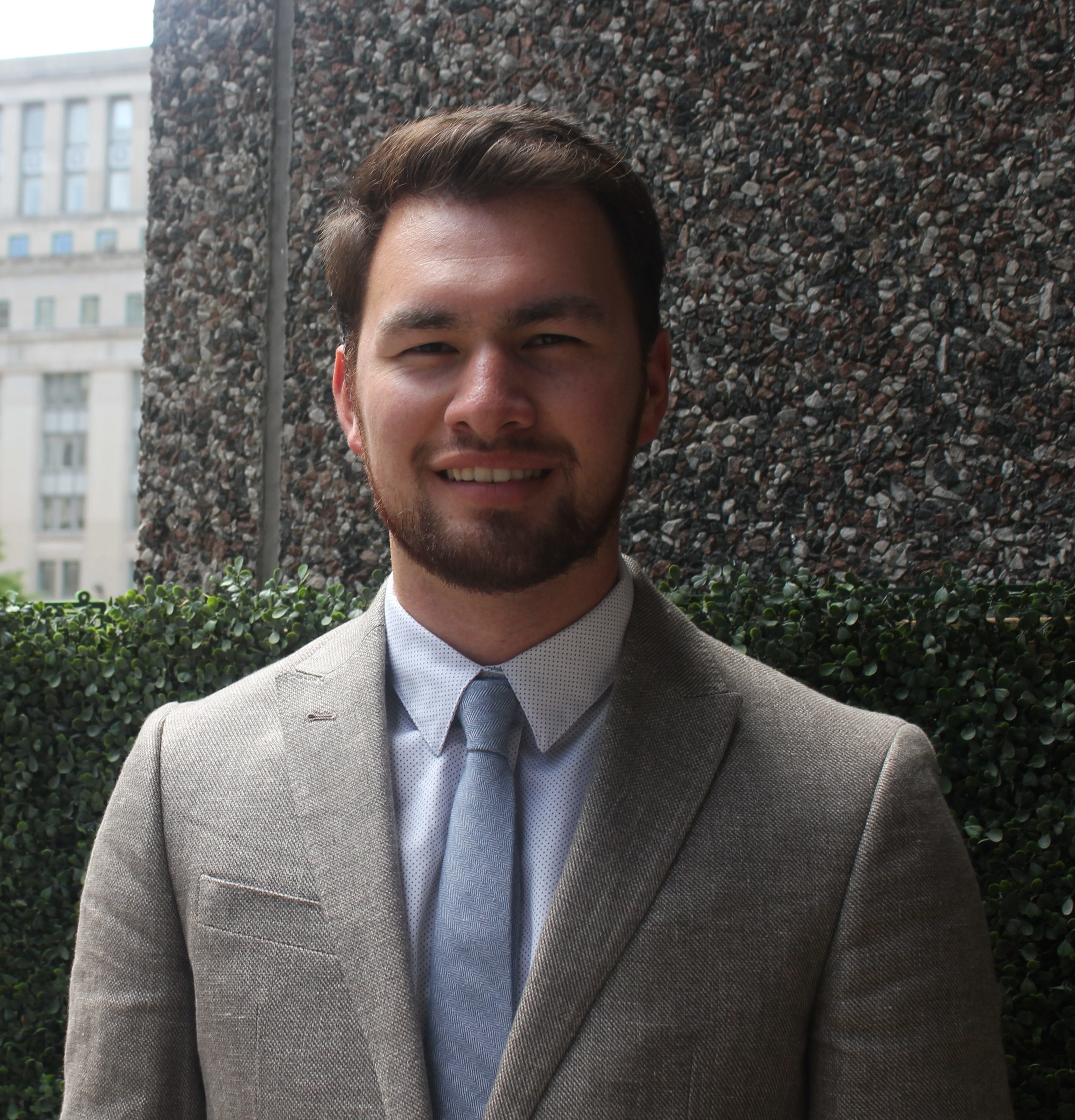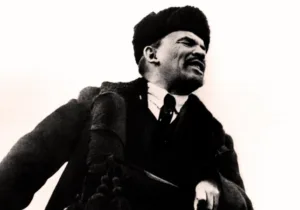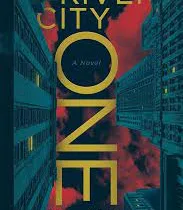“He has tried to undermine all we hold sacred: Lenin, the Soviet system, Soviet power—everything dear to us… This hooligan Solzhenitsyn is out of control.”
— Leonid Brezhnev
First, George Kennan’s famed 1946 “Long Telegram” woke many Western policymakers to the ideological threat of Soviet Communism. Then in 1973 Nobel laureate Aleksandr Solzhenitsyn (pronounced sol-zhuh-neet-suhn) stirred the rest of the world with The Gulag Archipelago, a sobering account of the Soviet prison system that relies on hundreds of eyewitness testimonies and the first-hand experience of Solzhenitsyn himself. After its publishing, Solzhenitsyn was exiled from the Soviet Union for what Kennan called “the most powerful single indictment of a political regime ever to be levied in modern times.”
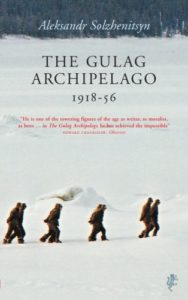 Solzhenitsyn was born a year after the 1917 Russian Revolution to a Russian artillery officer and the daughter of a Ukrainian landowner. His father died six months after his birth, leaving his widowed mother to raise him alone. Though raised religious, Solzhenitsyn was a loyal Communist and became an officer in the Red Army during World War II.
Solzhenitsyn was born a year after the 1917 Russian Revolution to a Russian artillery officer and the daughter of a Ukrainian landowner. His father died six months after his birth, leaving his widowed mother to raise him alone. Though raised religious, Solzhenitsyn was a loyal Communist and became an officer in the Red Army during World War II.
But, near war’s end, Solzhenitsyn made the grave mistake of insulting Joseph Stalin, “the man with the mustache,” in a letter to a friend. He spent the next eight years in a prison camp in Kazakhstan, an unfortunate cog in the gulag machine.
His experience there provided the materials for his first work, One Day in the Life of Ivan Denisovich (1962). Nikita Khrushchev, in an effort to discredit his predecessor Stalin, sanctioned its publishing—unwittingly unleashing one of the Soviet Union’s most effective critics. The novella spans one day in the gulag from the perspective of Ivan Denisovich Shukhov, a wrongly accused Russian soldier battling hunger, frostbite, and exhaustion.
One Day was an international success, including in Russia. Readers began to draw comparisons between the previously unpublished Solzhenitsyn and other Russian literary giants like Fyodor Dostoevsky and Leo Tolstoy. The Politburo quickly withdrew its support for the book and then banned Solzhenitsyn from print.
Solzhenitsyn’s first novel was one of the first in an avalanche of samizdat literature, or self-published works by underground Russian dissenters. Although not as popularly read as Thomas Paine’s Common Sense, Solzhenitsyn’s One Day had a similar, galvanizing effect on Russia’s intellectual elite and broader culture.
Ukrainian journalist Vitaly Korotich once commented, “The Soviet Union was destroyed by information—and this wave started from Solzhenitsyn’s One Day.”
In the early 1960s, however, Solzhenitsyn’s star was only beginning its ascent. He followed up his novella with the books The Cancer Ward (1966) and In the First Circle (1968), which provided equally harrowing accounts of the commoner’s experience under totalitarianism.
Solzhenitsyn received the Nobel Prize in Literature in 1970 for the “ethical force with which he has pursued the indispensable traditions of Russian literature.” Since Soviet authorities prevented his travel to Stockholm, his acceptance “speech” circulated through the Western press.
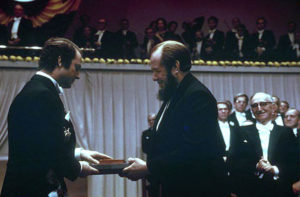
Still, Solzhenitsyn had yet to produce his best work. In 1973, the manuscript of The Gulag Archipelago was smuggled out of Russia on microfilm and published in the West. Leonid Brezhnev’s Politburo ordered Solzhenitsyn’s arrest, revoked his citizenship, and sent him into exile in West Germany. Eventually, Solzhenitsyn settled in rural Vermont, where he continued to write for the next 18 years until he returned to the motherland in 1994.
The Gulag Archipelago is Solzhenitsyn’s magnum opus. It spans three volumes, incorporated the testimony of 227 political prisoners, and offered one forceful condemnation of ideology in a century that witnessed millions fall casualty to its vices. One lengthy passage from chapter four of the first volume is worth citing:
Ideology—that is what gives evildoing its long-sought justification and gives the evildoer the necessary steadfastness and determination… That is the social theory which helps to make his acts seem good instead of bad in his own and other’s eyes, so that he won’t hear reproaches and curses but will receive praise and honors. That was how the agents of the Inquisition fortified their wills: by invoking Christianity; the conquerors of foreign lands, by extolling the grandeur of their Motherland; the colonizers, by civilization; the Nazis by race; and the Jacobins (early and late), by equality, brotherhood, and the happiness of future generations.
Thanks to ideology, the twentieth century was fated to experience evildoing on a scale calculated in the millions. This cannot be denied, nor passed over, nor suppressed.
Solzhenitsyn refers to this ideology that justifies violence as a “lie”—a falsehood that demands daily participation in its tyranny. Ideology, for Solzhenitsyn, is dangerous when paired with repression and untruth. On the night of his arrest, two months after The Gulag Archipelago was published, Solzhenitsyn penned an essay titled “Live Not By Lies.” In it, he rouses Moscow’s intellectuals to resist the tyranny of ideology through “non-participation in lies.”
“Though lies conceal everything, though lies embrace everything, but not with any help from me,” he writes.
However, Solzhenitsyn’s unfiltered truth-speaking earned him an unsavory reputation in the West. He often railed against the spiritual depravity and decadence of the West, most infamously at Harvard’s 1978 commencement.
“The West has finally achieved the rights of man, and even excess,” declared an impassioned Solzhenitsyn before a quiet crowd, “but man’s sense of responsibility to God and society has grown dimmer and dimmer.”
Most Western observers treat his critiques of democracy as one would the senile comments of a decorated war veteran. Let Solzhenitsyn write about the evils of Communism, they say, but what does he know about liberalism and the West? They acknowledge his literary genius and historical influence, yet dismiss him as a Slavophile, monarchist, theocrat, even as an anti-Semite, though Solzhenitsyn himself rejected the charges of anti-Semitism as baseless.
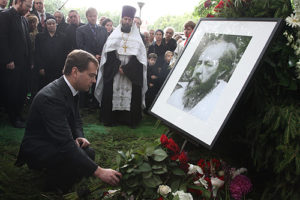
Interestingly enough, Solzhenitsyn’s work has acquired newfound significance in modern Russia. In 2007, Vladimir Putin awarded the dying writer Russia’s highest award, the State Prize of the Russian Federation. Perhaps the one thing Putin, a former KGB agent, and Solzhenitsyn, a dissident, have in common is their love for Russia—no matter the two men envision two different Russias. In the most twisted hagiography, Putin chooses to ignore Solzhenitsyn’s critiques of the former Soviet Union and instead glorifies his ardent Russian nationalism.
The state media remembers Solzhenitsyn as a patriot, and The Gulag Archipelago is now required reading in high school classrooms. As long as people, especially Russians, are reading Solzhenitsyn, hope remains. For those 151,000 words bear witness to Solzhenitsyn’s truth. And Solzhenitsyn’s legacy will always be as a dissident who decried tyranny and roused citizens to resist.
His life, in many ways, is summarized by the Russian proverb he cites at the end of his Nobel address: “One word of truth shall outweigh the whole world.”
—
Joshua Cayetano was an intern for Providence in the summer of 2017. Originally from the Bay Area, California, he is a member of the inaugural class of the William Penn Honors Program at George Fox University, where he also studies political science and history. In the spring of 2017, Joshua received the State Department’s Benjamin A. Gilman Scholarship to study in Amman, Jordan. His interests include Middle Eastern affairs, the application of faith in the public square, and advocacy for “the least of these.”
Feature Photo Credit: Aleksandr Solzhenitsyn in West Germany after the Soviet Union expelled him in 1974. Via Wikimedia Commons.
